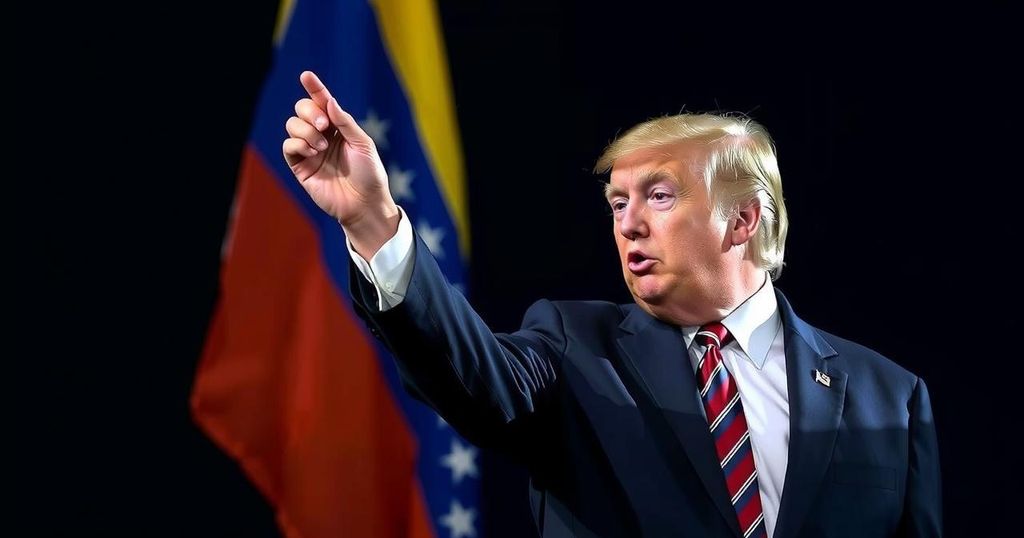The U.S. recognized Edmundo Gonzalez as Venezuela’s “president-elect” months after a disputed election where Maduro claimed victory. Secretary Antony Blinken emphasized respect for voters’ choice. Gonzalez, exiled in Spain, reported significantly higher vote counts than Maduro, while the Venezuelan government continues to face international scrutiny for election transparency. Colombian President Petro has since retracted support for the elections, calling them a “mistake.”
The United States has formally recognized Edmundo Gonzalez, a leading opposition candidate in Venezuela, as the “president-elect” following a contentious July election, where President Nicolas Maduro claimed victory. U.S. Secretary of State Antony Blinken publicly acknowledged Gonzalez’s electoral success via social media, emphasizing the need to respect the will of Venezuelan voters. The Biden administration asserts that Gonzalez secured the highest number of votes, despite the Venezuelan electoral authority declaring Maduro the winner under questionable circumstances. Venezuelan electoral officials, loyal to Maduro, omitted detailed vote counts, causing significant scrutiny and skepticism regarding the election results. In contrast, the opposition coalition retrieved and shared voting data from approximately 80% of the electronic voting machines, claiming that Gonzalez received double the votes compared to Maduro. Gonzalez expressed gratitude for the recognition of the people’s will, underscoring this movement’s importance for change in Venezuela. Following the election, Gonzalez departed for Spain amidst threats of arrest linked to investigations surrounding the publication of vote tally sheets. The Venezuelan Foreign Minister disparaged Blinken, suggesting he reflect upon his government’s failures rather than criticize Maduro. In response to international demands for transparency, Maduro ordered an audit by the Supreme Tribunal of Justice, which reaffirmed his victory despite widespread doubts. Observers from the United Nations and the Carter Center questioned the credibility of the reported results, although they did not officially endorse the opposition’s claims. Recently, Colombian President Gustavo Petro revised his earlier endorsement of the election, declaring it a “mistake” during a media interview. His remarks were part of ongoing dialogue among regional leaders regarding the fallout from the election results, further complicating Venezuela’s political landscape. With Maduro’s inauguration scheduled for January 10, the future remains uncertain as international scrutiny continues.
The political climate in Venezuela has been characterized by a long-standing power struggle between the government of Nicolas Maduro and the opposition, led by various figures including Edmundo Gonzalez. The July elections drew international concern due to accusations of impropriety, lack of transparency, and adherence to democratic norms. The significance of the U.S. position lies in its implications for international relations, particularly in relation to Latin America and the ongoing challenges to democratic processes in the region. The reactions from foreign leaders are indicative of the complex geopolitical dynamics at play.
The official recognition of Edmundo Gonzalez as Venezuela’s “president-elect” by the United States signifies a major geopolitical stance amid a controversial electoral process in Venezuela. This acknowledgment raises critical questions about the legitimacy of the current regime and the ongoing struggle for democracy in the country. As the political situation unfolds, the international community remains watchful of Venezuela’s actions and the responses from domestic and foreign actors.
Original Source: www.voanews.com






